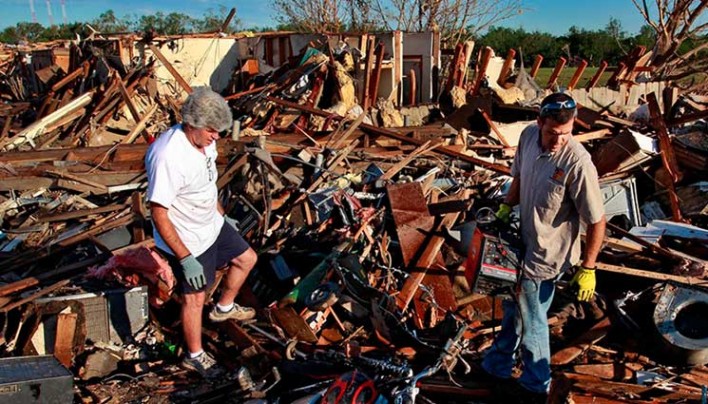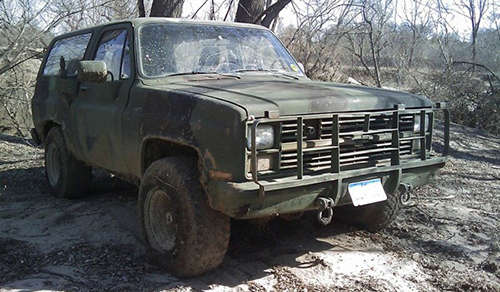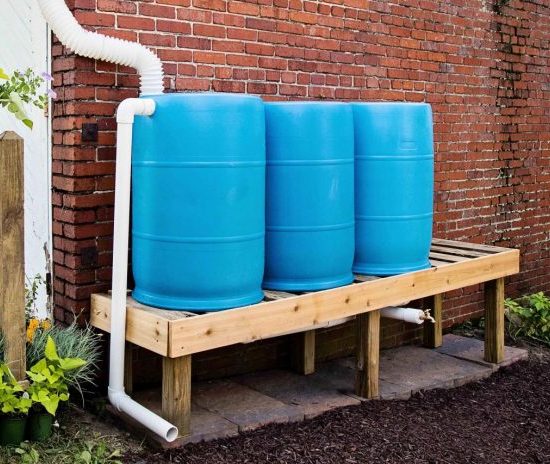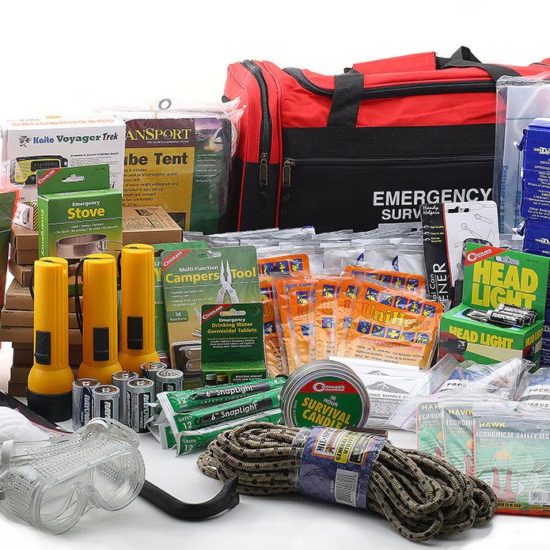
As I read about the destruction that occurred in Houston and Florida last couple of weeks I was saddened for the people who were lost as well as those who must try to rebuild through those tragedies.
Tornados can happen anytime in the summer in the middle of the country. The bulk of tornadoes occur in what is called tornado alley which runs from central Texas, through Oklahoma, Kansas, and Nebraska and into South Dakota, although Tornadoes can happen in any state.
I recently read two articles on Survival Blog written by individuals with personal experience living through the tornado near Moore Oklahoma and another who lived through Hurricane Katrina in. As I read these two articles I made a mental note of some similar themes that each person encountered (and made me think more about what happened in Houston and Florida) and I wanted to share those with you.
Lesson Number 1
If you can, get out of dodge quickly

Tornado Alley MapThis may apply more to people who live in coastal areas that may be more prone to hurricanes. Tornadoes don’t offer a lot of advance notice, but hurricanes are generally known for at least a week ahead of time. The usual response in a hurricane is to wait and see. If you are one of those who wait, deciding at the last minute is not going to work out. Roads will be jammed with cars and traffic will be at a standstill. Even after the hurricane, the people from Florida reported that they were essentially stuck in traffic for 5 hours unable to make it to their home. Imagine if you are trying to outrun a Hurricane before it hits.
Tornadoes give much less warning, but if you have a shelter, the ability to make it to that shelter quickly will be important. It goes without saying that it could save your life. Having access to a weather band radio and monitoring it during Tornado warnings should be a normal part of life for people living in these areas. Just so you know a Tornado warning means that you better seek cover quickly.
It would be a good idea to have at least 3 shelters you could go to if needed during a tornado. These can be public shelters, your own (ideally if you are home) or friends. Barring that, structurally sound buildings would be the next bet, but in a massive F5 tornado that doesn’t guarantee safety either.
Lesson Number 2
If all of your survival equipment is blown away, what will you do?
Like I said, we don’t usually worry about Hurricanes but the thought of having your emergency preparedness supplies blown all over the county isn’t pleasant at all. I fully appreciate that there are a lot worse circumstances to have to live through, but it struck me how what good will all of your emergency food do you if it is blown away.
For those who are living in areas prone to tornadoes I would try to plan on at least two storage places for most of my emergency supplies. If you live in tornado alley, I would store a survival kit, some long-term food and other disaster supplies at a location other than my home. This could be a storage facility in the next town or with a neighbor or family friend in their basement. This way you have some redundancy with your emergency preparations. Will OPSEC be an issue? I don’t think so with this type of situation. Who is going to look at you like you are crazy if you are living in Oklahoma and want to store some supplies at their house?
If that wasn’t an option, I would strongly consider burying some of those supplies underground on your property. At least with having some supplies, food and water stored away from your location you shouldn’t have to worry about losing everything if your home were to suffer a direct hit. What if the tornado wipes out the storage building instead of your house? Well, that is still lucky for you isn’t it?
Burying supplies underground might not be as safe in areas prone to flooding, but with the right waterproofing this is still possible. It just might take longer for the water to recede for your supplies to be in a condition to be retrieved. Again, I know this isn’t ideal, but having them float down the river isn’t either.
Lesson Number 3
Make a plan and then be prepared to throw it in the trash
In Hurricane Katrina, the author wrote about how his home was fairly high up so they didn’t worry about flooding initially. Then the water started coming in and they moved supplies off the floor. Then they had to move everything to the attic to escape the water. A well thought out plan is essential for dealing with any disaster, but Murphy and Mother Nature conspire to change your plans occasionally. I think having a plan is still a vital part of preparing. It helps you visualize potential problems before they happen. You can war game different scenarios in your mind and it helps to think through your options. In this case, the family had to adapt to the changing situation, but their gear and supplies were already with them and prepared.
Having a plan will if nothing else make you think about everything you would need to take with you. Your plan can help create your survival kit list and identify issues that may have slipped your mind. For instance, an emergency is no time to be looking for a flashlight so having a plan for dealing with a disaster at night could help you identify needs to procure a source of light and optionally how to store that flashlight so that you always know where it is. This could lead you to purchase back-up batteries for the flashlight. This might trigger the need to get a solar charger to recharge those batteries. On and on.
Lesson Number 4
Clean-up is almost always part of a natural disaster. Plan for it
In both the flooding as a result of Katrina and the destruction from the tornado everyone had some level of clean-up to do before their homes were livable again. For the flooding, water damage had to be abated quickly because mold and mildew set in almost immediately in the heat. Everything had to be cleaned, water removed and disinfected with a bleach solution. Plan on storing a few extra bottles of bleach as this can be used not only to treat water, but kill germs.
Heavy gloves, boots and work pants will be very welcome if you are walking though debris strewn yards hauling shattered pieces of wood or soaking wet sheet-rock to the curb. I add these to my supplies as well as face masks and we keep old clothes in the attic for times like this. Items like pry bars, axes and chainsaws will help to clear downed trees.
Lesson Number 5
Just because the storm is over, the potential for injuries isn’t
In both of the disasters people who survived were affected by the tragedy. Within a day or two a foggy weariness overtook them, decisions were not easy to make and they acted as if their minds were on other things. The effects of Traumatic events last longer than the actual event so an awareness that you might need to take it easy and give as much grace as possible would be wise. If you have smaller children they might be prone to withdrawing or lashing out after a tragedy like this so they will need extra attention and care.
The mental side of the equation is not the only concern. Even after the flood waters reside and the skies have cleared, injuries are common. A solid first aid kit is a must in your disaster supplies, but knowing how to use it will be more important. With debris, cuts can be common and in a wet, dirty environment without running water, infections can set in quickly. This is where taking care with cleanup can save some injuries but you probably won’t avoid them all. Make sure you have the basic inoculations like tetanus up to date. Have a decent first aid kit with antibiotic and plenty of bandages as your minimum.
None of us know when or if we will ever be faced with a disaster like this and who knows what will happen when we do. Hopefully, some of these ideas can help you. If you have your own, I would love to hear them in the comments below. Stay Safe.



















